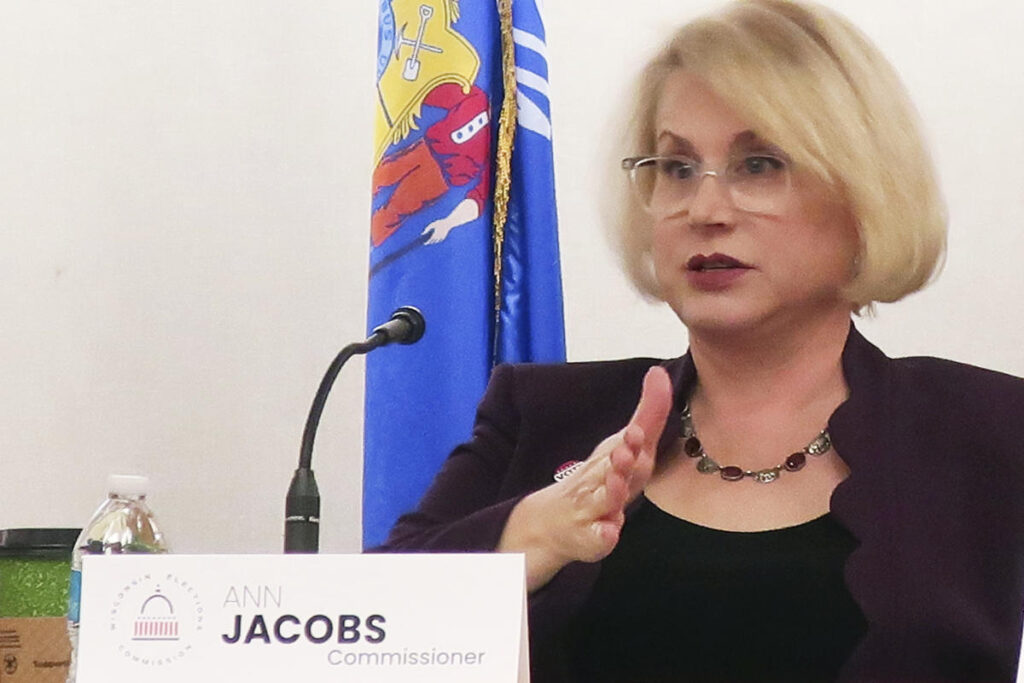In a recent update from Wisconsin, the state’s election commission has certified Donald Trump’s victory in the state during the 2020 presidential election. The certification was conducted by Commission Chair Ann Jacobs through a brief Zoom teleconference, confirming that Trump amassed 1,697,626 votes compared to Democrat Kamala Harris, who garnered 1,668,229 votes. The relatively subdued nature of this certification contrasts sharply with the turmoil that characterized the aftermath of the election, during which Trump vehemently denied Joe Biden’s win in Wisconsin, which had been by a margin of approximately 21,000 votes.
Trump’s post-election activities in Wisconsin included demanding a recount in Dane and Milwaukee counties, both Democratic strongholds, although the recount did not materially alter the election outcome. Subsequently, he attempted to invalidate over 221,000 ballots in these counties, citing various criticisms of absentee voting procedures. Specific grievances included claims about the legitimacy of absentee ballots cast without proper requests, those from individuals declaring “indefinitely confined” status, and ballots collected by poll workers in parks, among others. However, these legal challenges were largely dismissed; the Wisconsin Supreme Court ruled that many of Trump’s claims were either submitted too late or lacked sufficient merit to warrant consideration.
The attempts to contest the election results were part of a broader campaign led by Trump and his supporters. In 2021, Wisconsin Assembly Speaker Robin Vos responded to pressure from the former president by enlisting former state Supreme Court Justice Michael Gableman to investigate purported election fraud. Despite the significant resources and attention given to this inquiry, it ultimately found no evidence of wrongdoing. The aftermath of Gableman’s investigation has now involved legal scrutiny against him, with the state Office of Lawyer Regulation filing a complaint accusing him of breaching various rules of conduct during the inquiry. The Wisconsin Supreme Court is currently determining any applicable sanctions.
Compounding these election-related tensions was the situation of Meagan Wolfe, the nonpartisan administrator of the election commission. Under attack from conspiracy theorists who incorrectly accused her of colluding to rig the election for Biden, Wolfe has found herself in a contentious position. Republican legislators have sought to remove her from her role, yet the commission has initiated legal action to sustain her employment, with the case now pending before the state Supreme Court. This reflects a broader context within the GOP, where distrust of electoral processes, particularly surrounding mail-in ballots and vote counting methods, remains prevalent despite Trump’s victory in the last election.
While Trump’s national success seems to have somewhat tranquilized conservative frustrations, a segment of the Republican party continues to harbor substantial skepticism about the legitimacy of elections. Such sentiments are notably directed at the mechanisms of mail-in voting and electronic vote counting systems. However, positive developments have occurred in other states, where contested certifications that plagued the 2020 presidential election and the following midterms have given way to smoother processes recently. States like Arizona, Michigan, Nevada, and New Mexico have successfully certified their election results, reflecting a shift towards more standardized and accepted election protocols.
In conclusion, the certification of Trump’s win in Wisconsin signifies a return to procedural normalcy following the chaos of the 2020 election. Despite the challenges posed by ongoing political disputes and conspiracy theories, the integrity of the election process in several states has been reaffirmed through successful certifications. The Wisconsin election commission remains at the center of this evolving narrative, navigating accusations and legal battles while attempting to uphold its responsibilities amidst a landscape marked by deep political divides and skepticism regarding electoral integrity.

